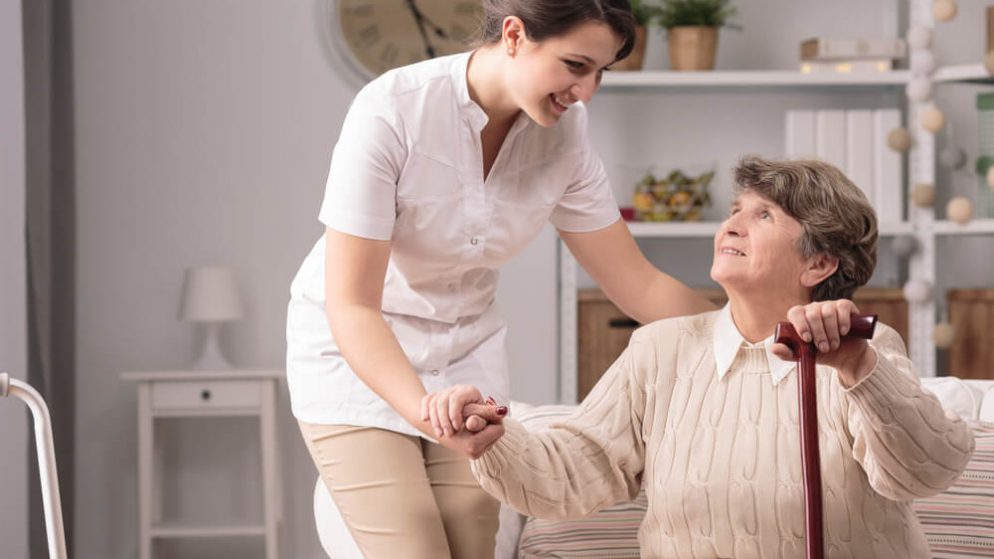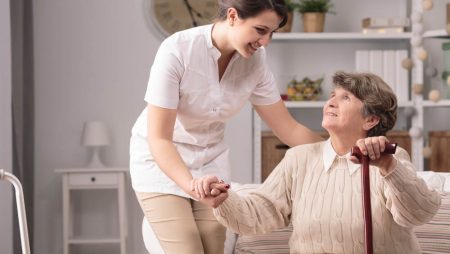



Get new exclusive access to healthcare business reports & breaking news




A few decades ago, house calls had almost become obsolete, with house calls dropping to less than 0.5% by 1995. However, the payment restructuring, mobile technology, and a gradual increase in the elderly population boosted demand for house calls.
House calls refer to having home doctor visits at your convenience. The qualified medical professional and a certified medical assistant in phlebotomist drive up to your home with a medical kit.
This kit contains most medical equipment typically found in a doctor’s office, including a stethoscope, blood pressure cuff, equipment for lacerations repair, otoscope, etc. The medical assistant will perform blood draws, help with documentation, collects vital signs, and strep tests.
These medical visits aren’t limited to a specific type of medical aid but cover a wide range starting from preventive care to management of chronic diseases. Some of the services that a senior may access include, but are not limited to:
Most seniors may qualify for medical visits by providing a valid reason for not visiting a doctor’s office. Some potential problems may include but are not limited to disability or injury, traveling with vision problems, memory issues such as Alzheimer’s. Chronic conditions with compound care and potentials that are home-bound. Read below to find out why doctor house calls are trendy for senior health.
Most seniors tend to use emergency departments and may incur ambulance transportation costs of between USD$400 and USD$1,200 in addition to Emergency Room (ER) fees, texts, and X-rays. Compared to an emergency house call that may cost under USD$300, seniors would opt for house visits.
The time spent in the ER and the waiting room just to see a doctor tends to be too much for seniors. The drive alone to and from the doctor tires out both them and the caregivers. For instance, a caregiver may have to get a patient ready at six AM for a nine AM appointment, and with old age, the patient may get frustrated.
Some seniors may have gotten poor services during office visits which may have resulted in hospitalization. They probably had to tolerate the uncomfortable hospital environment and still incur high costs that come with it. But with house calls, the patient doesn’t have to undergo unnecessary hospital stays as they receive it in the comfort of their house.
In personalized care, physicians use factors such as the environment and personality of the patient to design customized treatment plans that predict a person’s illness, risk factors, and reaction to the medication. Diseases are diagnosed and treated effectively and immediately with home calls. Physicians can also prevent anticipated ailment by focusing on providing prevention treatment for the patients.
With most seniors experiencing errors in prescriptions, home visits have reduced these errors significantly. Personalized care uses a personal health record that allows patients to access their immunization records, screening dates, and lab results. Communication between seniors and health care providers is direct and more straightforward. These open lines of communication keep the physicians, caregivers, and patients informed in case of any emergencies that require interventions.
Additionally, patients participate in the decision-making process, which increases the chances of patients sticking to their care plan. For instance, a patient is more likely to be involved in physical therapy if they know about managing their wellness. High engagement levels foster a positive relationship between providers and patients, which helps them achieve their results.
Most hospital environments contribute to either physical or emotional discomfort. Stress hormones such as Cortisol can lengthen sicknesses, especially when a patient experiences anxiety.
In the hospital, room sharing and constant noises don’t provide a conducive environment. Thus, it could slow down the recovery period in senior patients. Additionally, the continuous stress on the cost of staying in a hospital might reduce the rate of healing.
In most cases, seniors tend to spend more time in the hospital due to different ailments. However, with house calls, a patient has access to various services that they may have otherwise been unable to receive in the hospital.
The immune system in seniors may not be as strong and their bodies could produce few T cells that attack illness-causing cells. Due to fewer immune cells, it takes longer to attack harmful germs. Thus, leaving seniors in a position of contracting new illnesses that may result in longer recovery time.
Also, the lack of a robust immune system exposes them to micro-organisms that may cause deterioration in their health. Additionally, seniors may have underlying conditions that may make them vulnerable to microbial establishments. Thus, other patients, visitors, and healthcare personnel might pass bacteria, protozoa, fungi, and other viruses.
Due to the lack of natural organisms that protect the patient, they tend to lack resistance. Patients may end up contracting other diseases. However, during house calls, patients could avoid direct contact with health care personnel, reducing their chances of contracting other germs. With house calls, a patient can monitor the hygiene level of their physicians, such as washing hands to prevent the spread of germs that ends up causing severe complications.
Germs such as varicella or rubeola virus that are airborne won’t pass from one patient to another, thus limiting the patient’s exposure.
Most seniors experience a loss of independence as they age. The lack of autonomy brings feelings of depression and frustration that might deteriorate their social skills, quality of life, cognitive skills, and physical skills.
Some fears, such as falling, may make seniors scared of performing everyday tasks without help. A caregiver can modify the home by adding grab rails, chair lifts, and ramps to ensure safety. These modifications may not be available in some hospitals. Thus, it might give them a lacking sense of independence.
With home care, senior citizens can access the resources needed to maintain their health and encourage independence. Additionally, a senior can voice their preferences on different things such as what they want to eat, do and wear at home, which boosts independence.
A caregiver can choose to perform different activities with the patient that boosts independence and feel less of a burden. A patient may be encouraged to do more daily with loved ones, such as increasing their muscles and strengthening their bones. These interactions will reduce the feeling of isolation and depression.
Most seniors opt for home calls due to the chance it gives them of having family visit at any time. Family provides them with a feeling of comfort and social network, which positively impacts the quality of their lives. The elderly who are more involved with family members might not experience the isolation that might lead to depression and deterioration in health.
Home-based care facilitates family involvement through physical visits and staying connected through social media platforms. Members can send photos and messages to keep them updated and engaged. Also, long-distance families can stay connected through frequent phone calls.
They get something to look forward to every time someone visits, which wades off the feeling of being alone. Loneliness in seniors may lead to low self-esteem, for they may be concerned about why friends and family don’t want to spend time with them.
Family interactions remind them of how much everyone involved cares for them. This could boost the senior’s level of brain function. Memory and thinking skills tend to increase in socially engaged elders. Getting financial help from their family members needed to facilitate treatment could also prevent alleviated stress that promotes illnesses.
By maintaining close connections, seniors might have lower blood pressure, boosted immune systems, and decreased inflammation levels that increase their overall wellbeing. As a result of having social involvement, seniors’ fulfillment will be established. Thus, this plays a crucial role in improving their health and wellbeing.
There is a rise in seniors opting for house calls as compared to going to the hospital due to different reasons, including;
The benefits stated above for doctor house calls make it a good reason to be trendy in senior health. Although, staying in the hospitals could be an option, most seniors would rather prefer doctor house calls.